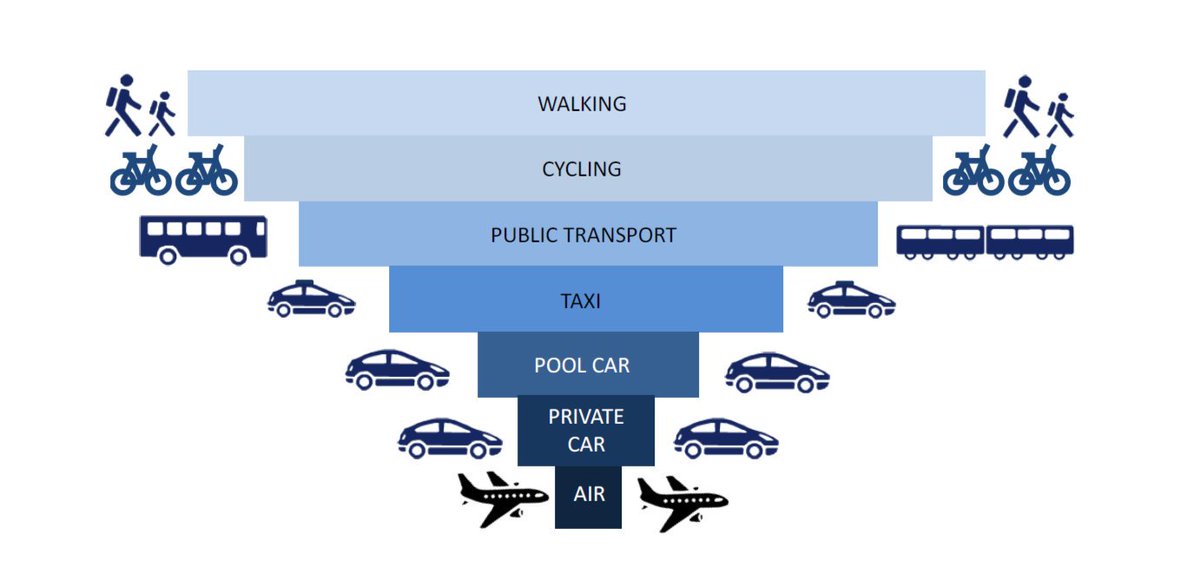I’m excited!
My energies, professional and voluntary, over the last 20 years or so have been devoted to encouraging healthier lifestyles through outdoor activities and promoting active travel. However, if I’m honest, working in these sectors have often felt like a bit of an uphill struggle and going against the general flow and direction that society is going.
There has been a lot of tremendous work on physical activity and active travel over the last couple decades that has been impactful and worthy of celebration. There is no doubt that metrics relating to these policy areas would be very much worse without these efforts.
However, the stark truth is the overall trends are at best static and sometimes even negative. Physical activity levels are stubbornly static and transportation is now Scotland’s largest source of climate change emissions and is the one sector where there has been almost no decarbonisation since 1990.
I find this situation frustrating as Scotland’s policies in these areas are frequently and rightly held up as exemplars. Scotland’s Physical Activity Strategy and Climate Change Plan are all cases in point. They say the right things, but all too often there appears to a disconnect between the policy imperatives and delivery on the ground.
Despite my frustrations, I’m now excited. I’m excited as a I see a perfect storm of opportunity in 2020 for large-scale and lasting impact, a paradigm shift. 2020 has the potential to be a ‘break-through’ year.
Generally, concepts such as climate change, wellbeing economics, circular economies, public health reform and the transport hierarchy are gaining traction are being taken more seriously. However, what’s most exciting is the number of significant national and long-term planning and investment processes that are converging in 2020. I’d highlight the following:
The Scottish Government has just published the new National Transport Strategy.
It is a strategy, so I welcome its vision and ambition. I welcome its intentions regarding climate change, inequalities health & wellbeing and prosperity, I also welcome its intention to embed the travel hierarchy in decision making by promoting walking, wheeling, cycling, public transport and shared transport options in preference to single occupancy private car use for the movement of people.

However, I will judge the NTS’s success on the above intentions by the success of the delivery plan that will support the Strategy. It must be exactly that, a delivery plan. It must be SMART and costed and hold Transport Scotland and all other delivery agents to account. This is a 20-year strategy.
Transport Scotland is now developing the second Strategic Transport Projects Review (STPR2).
STPR2 is the investment plan for delivery of the NTS and so there is a huge opportunity to ensure that STPR2 is faithful to the NTS’s priorities and transport hierarchy with active and sustainable travel investment prioritised. This will be a 20-year plan.
The Infrastructure Commission for Scotland recently published a report.
The report calls on the Scottish Government to prioritise all new infrastructure decisions based on their contribution to the delivery of an inclusive net zero economy. The finding of the Commission’s report will then cascade into the Infrastructure Investment Plan to be developed throughout 2020. This is a key document in terms of the Government’s investment plans. This will be a 5-year plan.
The Scottish Government has recently started a consultation on Scotland’s new National Planning Framework.
This is the fourth Framework (NPF4). An integral component of NFP4 will be the new Scottish Planning Policy. Spatial planning has such a fundamental impact on our future health and wellbeing and travel choices through its role in determining how our communities are designed. I feel the NPF4 and its SPP may be the biggest opportunity in 2020. NPF4 is a long-term strategy for Scotland to 2050.
In April a new public body, Public Health Scotland, will be established.
A key responsibility of this new organisation will be to deliver of the public health reform agenda and the Public Health Priorities. This body needs to find ways of influencing and being part of the delivery of the above processes. For example, I think serious consideration should be given to Public Health Scotland being a ‘health and wellbeing’ statutory consultee in land use planning.
Never before in my career has such a perfect storm of opportunity or beautiful convergence arisen. The convergence is not only a convergence in time, but probably more significantly a convergence across policy areas, particularly health, planning and transport. This provides a unique chance for alignment, the likes of which I’ve not seen before. And it gets better. There’s also a convergence between policy and investment plans. I think this is critical and presents the opportunity to deal with the frustrations I mentioned above.
In the words of Brent Toderian ‘The truth about a city’s [or country’s] aspirations isn’t found in its vision. It is found in its budget.’
However, if I’m being open this perfect storm also scares me. I’m aware that the stakes are uniquely high here. The opposite side of the coin to a significant opportunity is an equally significant risk of failure, or missed opportunity.
Strong, brave and collaborative leadership, driven by values linked to health and wellbeing, social justice, equalities and care for our environment, will be essential if this opportunity is to be fully realised. However, the lasting legacy for such leadership cannot be under-estimated. It could shift us into a new, more sustainable, healthier and equitable paradigm where everyone has a greater sense of wellbeing. I would so love to be a national politician at such an important and exciting time for Scotland, its people and its environment!
Written by Ian Findlay CBE, Paths for All Chief Officer. Follow Ian on Twitter @i_findlay


